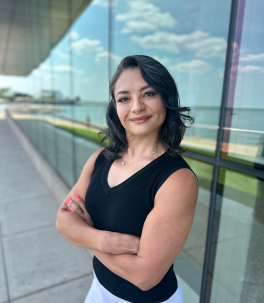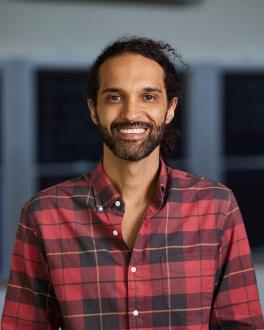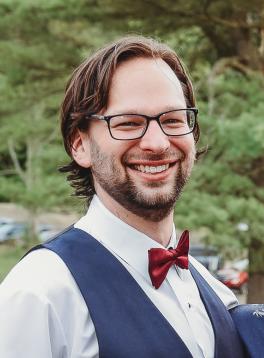Plenary Speakers
Plenary Speakers at YMC 2025:
Besides the student presentations, we are delighted to have the following distinguished speakers to deliver plenary talks at YMC:
Pamela E. Harris (University of Wisconsin at Milwaukee)

Title: Kostant's partition function and magic multiplex juggling sequences
Abstract: Kostant’s partition function is a vector partition function that counts the number of ways one can express a weight of a Lie algebra \( \mathfrak{g} \) as a nonnegative integral linear combination of the positive roots of \( \mathfrak{g} \). Multiplex juggling sequences are generalizations of juggling sequences that specify an initial and terminal configuration of balls and allow for multiple balls at any particular discrete height. Magic multiplex juggling sequences generalize further to include magic balls, which cancel with standard balls when they meet at the same height. In this talk, we present a combinatorial equivalence between positive roots of a Lie algebra and throws during a juggling sequence. This provides a juggling framework to calculate Kostant’s partition functions, and a partition function framework to compute the number of juggling sequences. This is joint work with Carolina Benedetti, Christopher R. H. Hanusa, Alejandro Morales, and Anthony Simpson.
Ryan Hynd (University of Pennsylvania)

Title: Mean Field Games
Abstract: This talk will present a framework for analyzing dynamic games involving a large number of interacting agents. The theory combines ideas from game theory, probability, and partial differential equations, which will be introduced and motivated throughout the discussion.
Cary Malkiewich (Binghamton University)

Title: Scissors congruence, old and new
Abstract: Scissors congruence is the study of polygons, polyhedra, and more generally polytopes in any dimension, up to the relation of cutting into finitely many pieces and rearranging the pieces. If two polytopes are scissors congruent, then they must have the same volume. But is the converse true?
We'll discuss the history of this problem, including the spectacular progress we made in the 20th century, and some new developments in the 21st. Many of the new developments concern "higher scissors congruence," where we shift our attention to the transformations given by the scissors congruences, and not just the question of whether such a transformation exists.
Previous YMCs
Lectures of many of the talks below can be found at the YMC Youtube Channel.
2024 Plenary Speakers
- Veronica Ciocanel (Duke University)
- Jordan Ellenberg (University of Wisconsin)
- Carl Wang-Erickson (University of Pittsburgh)
2023 Plenary Speakers
- Alejandra Alvarado (Easters Illinois University)
- Loredana Lanzani (Syracuse University and University of Bologna)
- Camen Rovi (Loyola University)
2022 Plenary Speakers
- Jeff Diller (NotreDame University)
- Julia Plavnik (Indiana University)
- Isabel Vogt (Brown University)
2021 Plenary Speakers
- Federico Ardila (San Francisco State University)
- Marissa Kawehi Loving (Georgia Tech)
- Jose Perea (Northeastern University)
- Lilian Pierce (Duke University)
2020 Plenary Speakers
- Matthew Kahle (Ohio State University)
- Roland Roeder (Indiana University Purdue University at Indianapolis)
2019 Plenary Speakers
- Moon Duchin (Tufts University)
- Sam Payne (University of Texas at Austin)
- Tatiana Toro (University of Washington)
2018 Plenary Speakers
- Corina Calinescu (NYC College of Technology, CUNY)
- Francis Edward Su (Harvey Mudd College)
- Karen Smith (University of Michigan)
2017 Plenary Speakers
- Sarah Koch (University of Michigan)
- Alex Kontorovich (Rutgers University)
- Ezra Miller (Duke University)
2016 Plenary Speakers
- Henry Segerman (Oklahoma State University)
- Ileana Streinu (Smith College)
- Melanie Wood (University of Wisconsin, Madison)
2015 Plenary Speakers
- Marty Golubitsky (Ohio State University)
- Dave Futer (Temple University)
- Svitlana Mayboroda (University of Minnesota)
2014 Plenary Speakers
- Benson Farb (University of Chicago)
- Ivelisse Rubio Canabal (University of Puerto Rico)
- Amie Wilkinson (University of Chicago)
